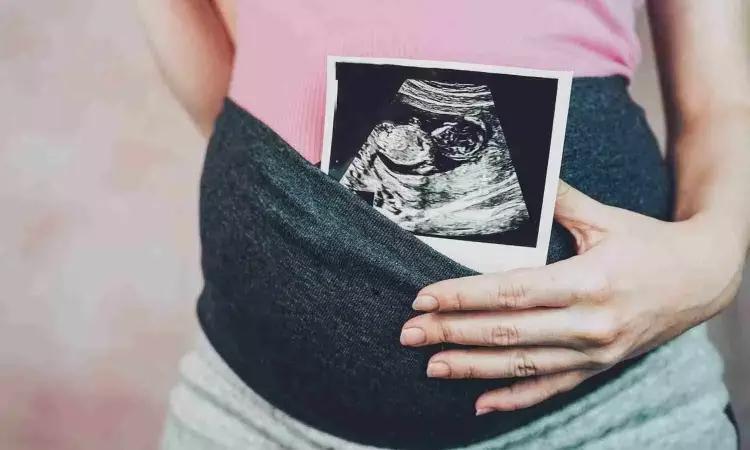- Home
- Medical news & Guidelines
- Anesthesiology
- Cardiology and CTVS
- Critical Care
- Dentistry
- Dermatology
- Diabetes and Endocrinology
- ENT
- Gastroenterology
- Medicine
- Nephrology
- Neurology
- Obstretics-Gynaecology
- Oncology
- Ophthalmology
- Orthopaedics
- Pediatrics-Neonatology
- Psychiatry
- Pulmonology
- Radiology
- Surgery
- Urology
- Laboratory Medicine
- Diet
- Nursing
- Paramedical
- Physiotherapy
- Health news
- Fact Check
- Bone Health Fact Check
- Brain Health Fact Check
- Cancer Related Fact Check
- Child Care Fact Check
- Dental and oral health fact check
- Diabetes and metabolic health fact check
- Diet and Nutrition Fact Check
- Eye and ENT Care Fact Check
- Fitness fact check
- Gut health fact check
- Heart health fact check
- Kidney health fact check
- Medical education fact check
- Men's health fact check
- Respiratory fact check
- Skin and hair care fact check
- Vaccine and Immunization fact check
- Women's health fact check
- AYUSH
- State News
- Andaman and Nicobar Islands
- Andhra Pradesh
- Arunachal Pradesh
- Assam
- Bihar
- Chandigarh
- Chattisgarh
- Dadra and Nagar Haveli
- Daman and Diu
- Delhi
- Goa
- Gujarat
- Haryana
- Himachal Pradesh
- Jammu & Kashmir
- Jharkhand
- Karnataka
- Kerala
- Ladakh
- Lakshadweep
- Madhya Pradesh
- Maharashtra
- Manipur
- Meghalaya
- Mizoram
- Nagaland
- Odisha
- Puducherry
- Punjab
- Rajasthan
- Sikkim
- Tamil Nadu
- Telangana
- Tripura
- Uttar Pradesh
- Uttrakhand
- West Bengal
- Medical Education
- Industry
Surrogacy associated with higher risk of severe pregnancy outcomes, claims research

People who are gestational carriers (or "surrogates") may have a higher risk of severe complications during pregnancy and early postpartum, hypertension in pregnancy, and postpartum hemorrhage, compared to people who conceive without assistance or with IVF, according to new research from ICES and Queen’s University.
Gestational carriers carry and give birth to children for couples or individuals who are otherwise unable to carry a pregnancy. Little is known about whether gestational carriers and babies are at a higher risk for severe health outcomes, both during pregnancy and following birth.
This is one of the first large population-based studies to analyze linked health datasets comparing health outcomes for three different types of conception: unassisted, in vitro fertilization (IVF), and gestational carriage.
“The study was prompted by an increased in the use of gestational carriers worldwide and a lack of information about the impact of this reproductive modality on pregnancy outcomes, for the gestational carrier and the offspring,” says lead author Dr. Maria Velez, an adjunct scientist at ICES and at the time of this study, an associate professor in the department of Obstetrics and Gynaecology at Queen’s University. Velez is currently an associate professor and a clinician scientist at McGill University and the Research Institute of the McGill University Health Centre (RI-MUHC)
The study, published in the journal Annals of Internal Medicine, included 863,017 singleton births at more than 20 weeks’ gestation in Ontario, Canada, between 2012 and 2021. The groups included 846,124 (97.6%) who were conceived without assistance, 16,087 (1.8%) by IVF, and 806 (0.1%) using gestational carriers.
The researchers analyzed severe maternal morbidity (SMM) and severe neonatal morbidity (SNM), which combine many different health indicators for both birthing people and babies. They also assessed hypertensive disorders (such as pre-eclampsia), cesarean delivery, preterm birth, and postpartum hemorrhage.
Key Findings
• The risk of SMM was 2% for the unassisted group, 4% for the IVF group and 8% for the gestational carriage group.
• The gestational carriage group also had a higher risk for hypertensive disorders and postpartum hemorrhage when analyzed separately from SMM.
• Although gestational carriage was associated with preterm birth (less than 37 weeks’ gestation), there was less clear evidence of a higher risk of SNM.
One limitation of the study was that there was a lack of information about why gestational carriage was chosen by the intended parents, egg and sperm donor sources, the type of IVF used, and reasons why people chose to become gestational carriers. Future research could help to assess whether any of these factors would impact the health outcomes of the pregnant person or the baby.
“Clinicians involved in the care of individuals and couples who need a gestational carrier to build their family should counsel their patients and the gestational carriers about the potential risk during pregnancy and early postpartum,” says Velez.
“There are guidelines about the eligibility criteria to minimize the risk of pregnancy complications among gestational carriers,” she adds. “However, these guidelines are not always strictly followed.”
Reference:
Maria P. Velez, Marina Ivanova, Jonas Shellenberger, et al. Severe Maternal and Neonatal Morbidity Among Gestational Carriers: A Cohort Study. Ann Intern Med. [Epub 24 September 2024]. doi:10.7326/M24-0417.
Dr Kamal Kant Kohli-MBBS, DTCD- a chest specialist with more than 30 years of practice and a flair for writing clinical articles, Dr Kamal Kant Kohli joined Medical Dialogues as a Chief Editor of Medical News. Besides writing articles, as an editor, he proofreads and verifies all the medical content published on Medical Dialogues including those coming from journals, studies,medical conferences,guidelines etc. Email: drkohli@medicaldialogues.in. Contact no. 011-43720751


